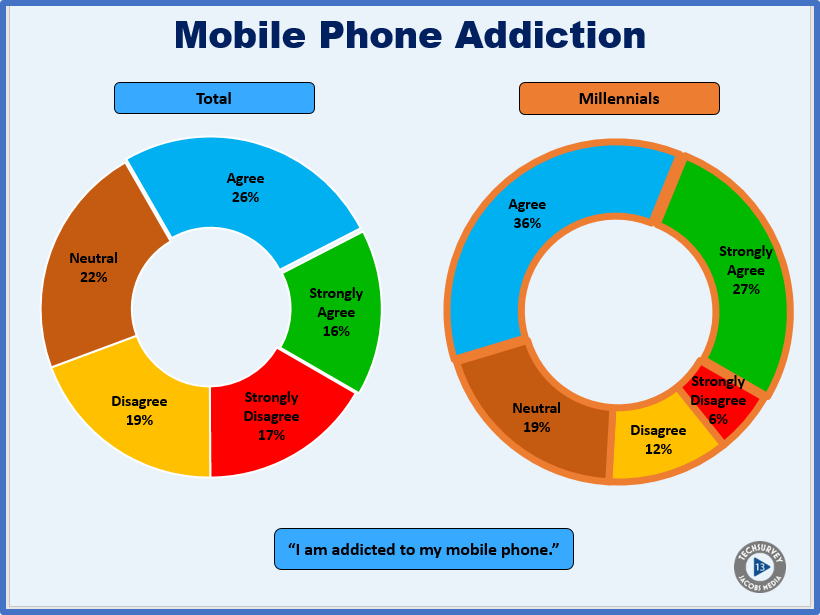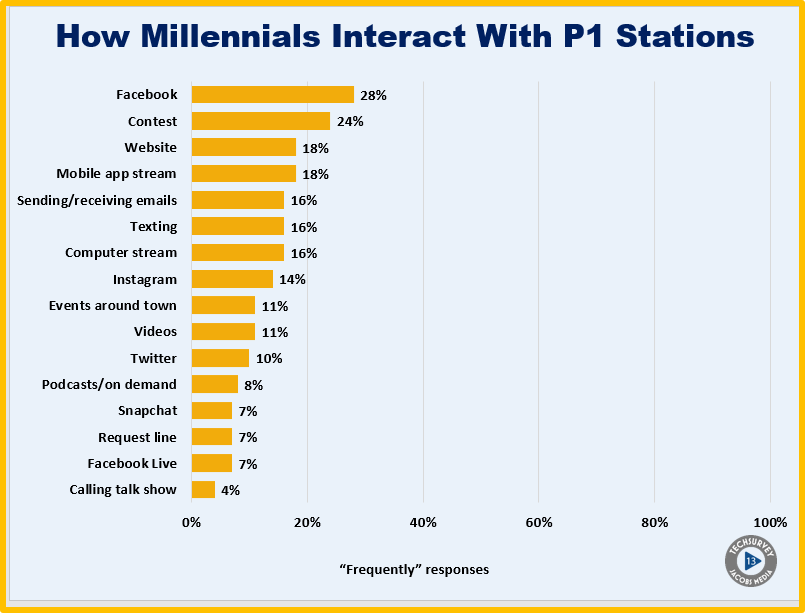
The newest piece of compelling evidence Millennials are eating mobile morning, noon, and night comes from a company called LivePerson and a research study they did loaded with data points that won’t surprise you in the least. You know everything in this report. There’s nothing they’ve discovered that you don’t already intuit to be true.
And yet, so many are aware of the Millennial mindset but are doing very little to rethink their content and their distribution pathways to accommodate these trends.
Their study focused on more than 4,000 Internet users in the 18-34 year-old demo across six countries, including the United States. In both the UK and the US, nearly three-quarters prefer digital communications to face-to-face contact. And eMarketer concludes that mobile phones have a little something to do with this. The research also points out that seven in ten sleep with their phones, while nearly two-thirds take them to the bathroom. And more than half report looking at their smartphone should they awaken during the middle of the night.
(True confession: So do I, including the wake up in the middle of the night part, which tends to happen with regularity these days.)
This is what’s known as mobile phone addiction. And after reading Lori Lewis’ “Merge” column in AllAccess a couple weeks back (“Texting On the Toilet Is The New Face To Face”) I went to our Techsurvey data from earlier this year to see just how hooked on smartphones Millennials truly are:
 While more than four in ten respondents in the total sample agree they’re addicted to their mobile phones, nearly two-thirds of Millennials are nodding their heads in agreement (assuming they’re not starting at their phones).
While more than four in ten respondents in the total sample agree they’re addicted to their mobile phones, nearly two-thirds of Millennials are nodding their heads in agreement (assuming they’re not starting at their phones).
When you consider that AM/FM radios in homes, dorms, and apartments are disappearing – especially among younger people – and every new car rolling off the assembly line allows seamless smartphone pairing within 30 seconds, it leads you to key conclusion:
If you want to capture the attention of a generation that now outnumbers Baby Boomers, a smart, coherent mobile strategy isn’t just a good idea – it’s an imperative.
And answer these questions:
Does your stream deliver a flawless experience?
Do you have a mobile app that represents your brand, allowing for seamless streaming and social connectivity?
Are you using text messaging as a main communication tool?
Are you responding and acknowledging socially in a timely, engaging way?
Are you developing a digital strategy created for Millennials and by Millennials?
Because one thing’s for sure. They’re not using their iPhones and Galaxy S8’s to call your request lines. That pretty much ended when John Landecker hung up his “Boogie Check” headphones at WLS.
 Remember, they’d rather text and interact socially than pick up their phones and call someone – friends, family, and your station.
Remember, they’d rather text and interact socially than pick up their phones and call someone – friends, family, and your station.
As Lori notes, “It all comes down to how easy it is to experience your brand without having to actually talk to you.”
That’s a different way to analyze your audience communication, interaction, and engagement.
It’s on their terms, not ours.
Tomorrow: Real life encounters with Millennials and their Gen Z brothers and sisters at a recent Michigan Association of Broadcasters event. And a shocking finding: many are as excited as we were about a career in broadcasting.
- What To Do If Your Radio Station Goes Through A Midlife Crisis - April 25, 2025
- A 2020 Lesson?It Could All Be Gone In A Flash - April 24, 2025
- How AI Can Give Radio Personalities More…PERSONALITY - April 23, 2025




Very true. For very special prizes (costly experiences) it is possible to promote dialing in – although that’s not the best idea for a long term strategy.
Think about how ticketing is changing now, to fight fraud and ensure ‘verified fans’ are first in line, not resellers. All had used technology to load the web pages, plus the app, plus… @ 5 minutes prior to a big event sale. Now, the fan clubs and authenticated or verified fan approach is becoming the new norm. And the apps themselves for a Live Nation are social, interactive, allow for friends to sit together and yet, still pay separately, resolving that old pay up situation. Point is it’s a seamless experience that also resolves numerous issues and also keeps the fans inside the ticketing ecosystem/ fan club… So there is no reason radio can’t try already, very true.
Josh, thanks. Making sure a radio station’s mobile experience aligns with the audience is a key to remaining relevant. Appreciate the comment.